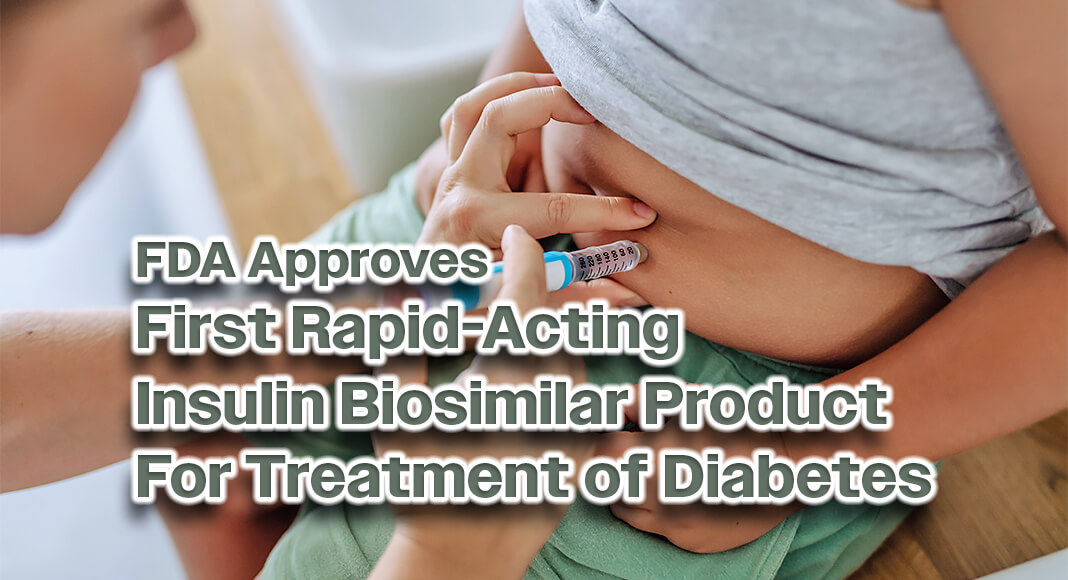
Mega Doctor News
The U.S. Food and Drug Administration approved Merilog (insulin-aspart-szjj) as biosimilar to Novolog (insulin aspart) for the improvement of glycemic control in adults and pediatric patients with diabetes mellitus. Merilog, a rapid-acting human insulin analog, is the first rapid-acting insulin biosimilar product approved by the FDA. As a rapid-acting insulin, Merilog helps to lower mealtime blood sugar spikes to improve control of blood sugar in people with diabetes. The approval is for both a 3 milliliter (mL) single-patient-use prefilled pen and a 10 milliliter (mL) multiple-dose vial.
Merilog is the third insulin biosimilar product approved by the FDA and joins the two long-acting insulin biosimilar products approved in 2021 by the FDA. Approval of biosimilar products can increase patient access to safe and effective treatment options.
“The FDA has now approved three biosimilar insulin products to treat diabetes,” said Peter Stein, M.D., director of the Office of New Drugs in the FDA’s Center for Drug Evaluation and Research. “Today’s approval highlights our continued efforts to improve the efficiency of the biosimilar approval process to help support a competitive marketplace and increase options for costly treatments, like insulin. Increasing access to safe, effective and high-quality medications at potentially lower cost remains a continued priority for the FDA.”
Biological products include medications for treating many serious illnesses and chronic health conditions, including diabetes. A biosimilar is a biological product that is highly similar to, and has no clinically meaningful differences from, a biological product already approved by the FDA (also called the reference product). Patients can expect the same safety and effectiveness from the biosimilar as from the reference product. To date, the FDA has approved 65 biosimilar products for a variety of health conditions.
More than 38 million people in the U.S. have been diagnosed with diabetes, a disease that occurs when blood glucose (sugar) is too high. Approximately 8.4 million Americans rely on insulin therapy, either rapid-acting and/or long-acting, to manage diabetes. Insulin, a hormone made by the pancreas, helps glucose get into a person’s cells to be used for energy. With diabetes, the pancreas doesn’t make enough insulin to keep blood sugar levels in the normal range, which can lead to serious health problems for patients.
“For the millions of people who rely on daily injections of insulin for treatment of diabetes, having a biosimilar option for their rapid-acting insulin injection can truly make a difference, as biosimilar products have the potential to increase access to these life-saving medications,” said Sarah Yim, M.D., director of the Office of Therapeutic Biologics and Biosimilars in the FDA’s Center for Drug Evaluation and Research.
Like Novolog, Merilog should be administered within five to ten minutes prior to the start of a meal. Merilog is administered subcutaneously (under the skin) by injection into the stomach, buttocks, thighs or upper arms. Dosing of Merilog should be individualized and adjusted based on the patient’s needs.
Merilog may cause serious side effects, including hypoglycemia (low blood sugar), severe allergic reactions and hypokalemia (low potassium in blood). Other common side effects may include injection site reactions, itching, rash, lipodystrophy (skin thickening or pitting at the injection site), weight gain and swelling of hands and feet.
The FDA granted approval of Merilog to Sanofi-Aventis U.S. LLC.









